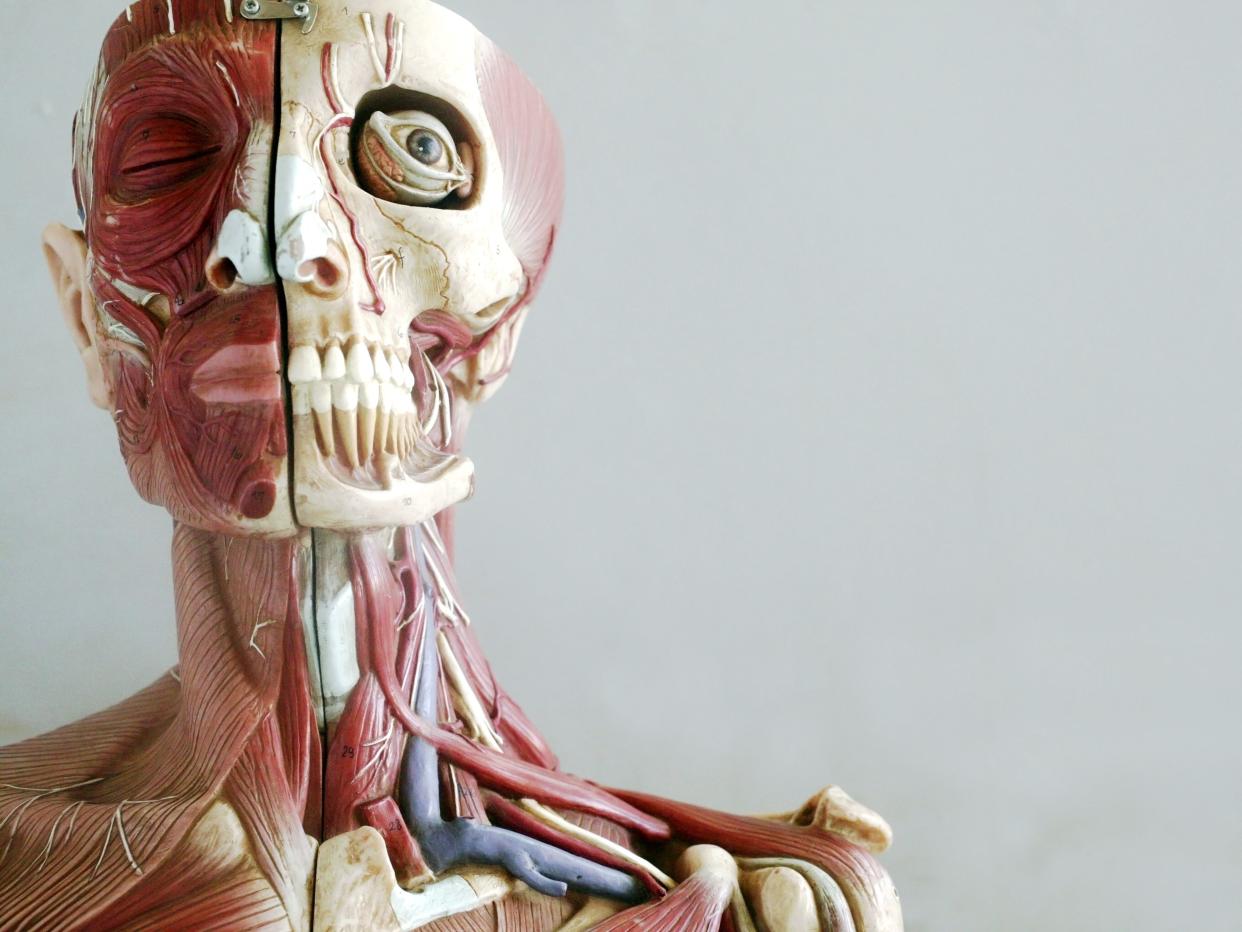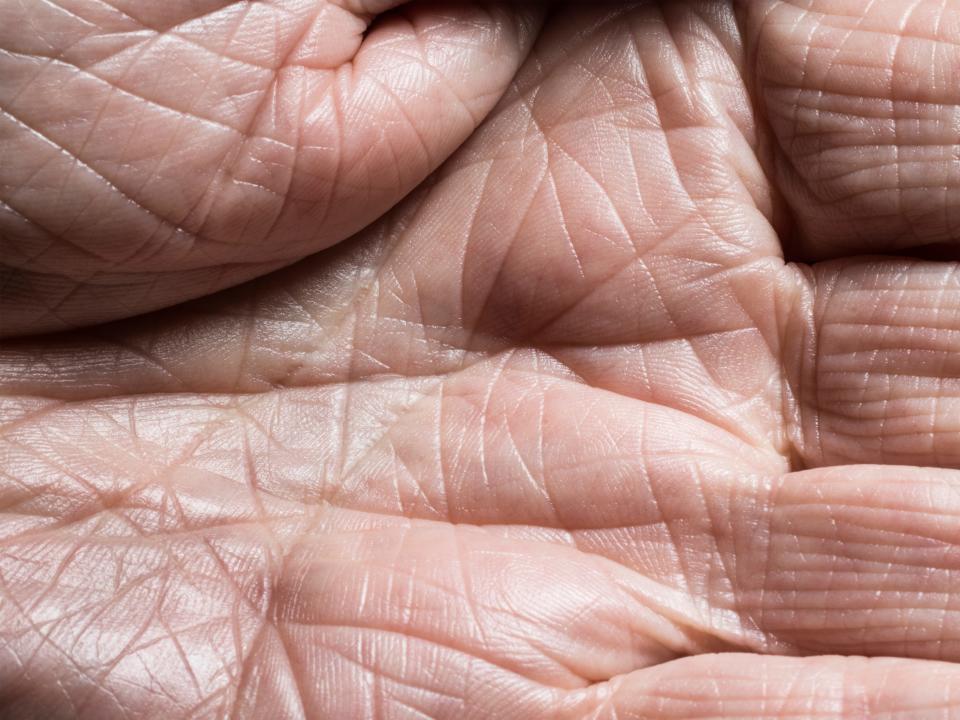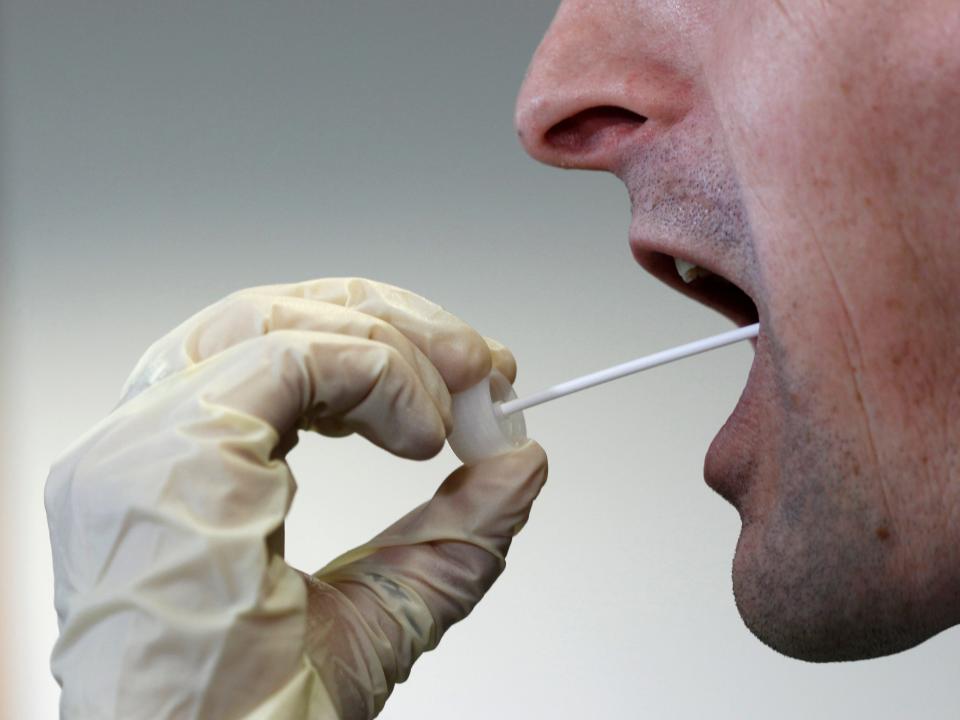7 things you (probably) never knew about your body, from the natural painkiller in your saliva to how many calories your brain burns

Getty Images
Bill Bryson's book "The Body: A Guide For Occupants" is a tour of the fascinating and bizarre ways the human body functions, beginning with the brain and ending with the toes.
From the 25 feet of hair you will grow in a lifetime to the 31,700 quarts of saliva you will secrete, the human body is extremely busy.
There are 37.2 trillion cells in the human body, that are constantly being created and destroyed, all performing different jobs to keep you alive.
The human body is a bizarre marvel of engineering. In Bill Bryson's newest book, "The Body: A Guide For Occupants," he explores exactly how our bodies work, from the natural painkiller our saliva produces to the way our bodies fight off cancer every day.
People will grow 25 feet of hair in their lifetime. They'll secrete 31,700 quarts of saliva. They'll misremember even their most important events, and their bodies will fight off cancer daily.
The 37.2 trillion cells in the human body are always working overtime to keep this complex, interconnected network of systems that is the human body functioning.
Here are some things you might not have known about what's happening inside your body right now.
All the chemicals that make up a human body can be bought for $5 — sort of.

Getty
Bryson's chemistry teacher once told him that all the chemicals that make up a human body could be bought for $5. It might've even been $2.97 in 1960s money, accounting for inflation.
Other experts disagree. According to the Royal Society of Chemistry the full cost of building a human with all the elements would be about $151,000. PBS estimated the fundamental elements of the human body would cost about $168.
Just six elements account for 99.1% of the human body. That's carbon, nitrogen, oxygen, calcium, hydrogen and phosphorus, but we also aren't complete without tiny amounts of tin, copper, and manganese in us.
Ironically, the cheapest chemicals available are the ones we have the most of. We're 61% oxygen and 10% hydrogen, and buying oxygen is worth $14 and hydrogen about $26, according to Bryson. Human bodies are 2.6% nitrogen, which will cost about 40 cents. But the 30 pounds of carbon you'll need would cost at least $69,000. Calcium, potassium, and phosphorus will cost another $73,000.
Obviously, no one can buy these elements and make a human body. In fact, "the only thing special about these random elements is that they make you," says Bryson.
We all completely misremember even the most vivid events.

Dan Kitwood/Getty
In 2001, right after 9/11, psychologists from the University of Illinois took detailed statements from 700 people about where they were and what they were doing when they learned of the event. A year later, psychologists asked these people the same question again and found almost half of them contradicted themselves in some crucial way.
Bryson vividly remembers watching it on television with his two children, but one of his children was actually in England at the time.
Memory is more like a Wikipedia page that can be changed, says psychologist Elizabeth Loftus, as humans are very suggestible. Loftus discovered it was possible to implant false memories into people's heads with one experiment, to convince them that they were traumatically lost in a shopping mall or hugged by Bugs Bunny at Disneyland.
But sometimes, with training, the human mind can perform incredible feats. At the US annual national memory championship, one champion was able to recall 4,140 digits after looking at them for just 30 minutes.
Biologically, there is no such thing as race.

Getty
The skin, our largest organ, is composed of an inner layer called the dermis and an outer layer called the epidermis. We shed over a million flakes of skin every hour. In Bryson's book, a surgeon named Ben Ollivere peels back a one-millimeter sliver of skin from a cadaver.
"That is where all your skin color is," Ollivere told Bryson. "That's all that race is - a sliver of epidermis."
Skin color is just a body's reaction to sunlight. "Biologically, there is actually no such thing as race — nothing in terms of skin color, facial features, hair type...that is a defining quality among peoples," said anthropology professor Nina Jablonski.
Humans have "de-pigmented" and "re-pigmented" to suit their environment during different times in human history, but there's still a lot we don't know about how our skin evolved the way it did.
You get cancer every day, but your body fights it off.

Justin Paget/Getty
Every day, it has been estimated, between one and five of your cells turns cancerous and your immune system captures and kills them. A couple of times a week people can get one of the most dreaded diseases in the world, but most people's bodies will save them.
Cancer cells are just like normal cells except they multiply wildly. Because these cells look so normal, the body may not detect them, and early stages of cancer can be completely painless. But when tumors get big enough to press on nerves, people begin to feel pain and head to the doctor.
"Cancer is the price we pay for evolution," researcher Olaf Heidenrich is quoted as saying. "If our cells couldn't mutate, we would never get cancer, but we also couldn't evolve."
Cancer isn't just one disease, but over 200, all with different causes and mortality rates. And cancer risk does increase with age — someone over the age of 80 is 1,000 times more likely to get cancer than someone in their teens.
There's a natural painkiller in your saliva.

Michaela Rehle/Reuters
Your saliva contains a painkiller called opiorphin, distributed around the 12 salivary glands of the mouth. It's six times as potent as morphine, although we only have it in very small doses.
Because the dose of opiorphin is so diluted, scientists still aren't entirely sure why it is there.
Saliva is mostly water, as well as a tiny-but-useful amount of enzymes that speed up chemical reactions. There's amylase, which breaks down sugars in carbohydrates while we're chewing them, and lysozyme, which attacks invading pathogens.
Your typical, healthy adult secrets a little less than a quart-and-a-half of saliva a day, and some estimates say the average human secrets 31,700 quarts of saliva in a lifetime.
Your eyes produce tears constantly, and there are 3 kinds of them.

Jaroslava Nyvltova/Shutterstock
Humans are the only creatures that cry from emotions. In fact, our bodies are constantly producing tears, which blur out imperfections on surface of our eyes and keep our eyes gliding smoothly. Our eyes also contain antimicrobial chemicals, which can keep pathogens at bay.
There are three kinds of tears; reflexive, basal and emotional. Basal tears are the ones your body produces constantly, reflexive tears are the tears you instinctively cry when faced with a task like onion cutting, and emotional are tears you might cry after a harrowing breakup.
Scientists still don't know why we cry, as there's no physical benefit to it.
Just thinking burns calories, but the smartest brains actually burn the least amount of calories.

Bruce Dixon/Unsplash
The brain uses 400 calories of energy a day to run, and it burns those calories at a steady rate, unlike other organs.
University of California researchers found that the smartest brains were usually the least productive. The most efficient brains solved a problem quickly and then went into a sort of standby mode. And the brain can hold 200 exabytes of information, which Bryson writes is roughly equal to "the entire digital content of today's world."
Though the brain is just 2% of our body weight, it consumes 20% of our energy, compared to the muscles, which use 25% of a body's energy. For newborns, the brain consumes 65% of the body's energy.
Read more:
17 science 'facts' you might've learned in school that aren't true
11 amazing facts about the human brain
30 food facts that will blow your mind
Read the original article on Insider

